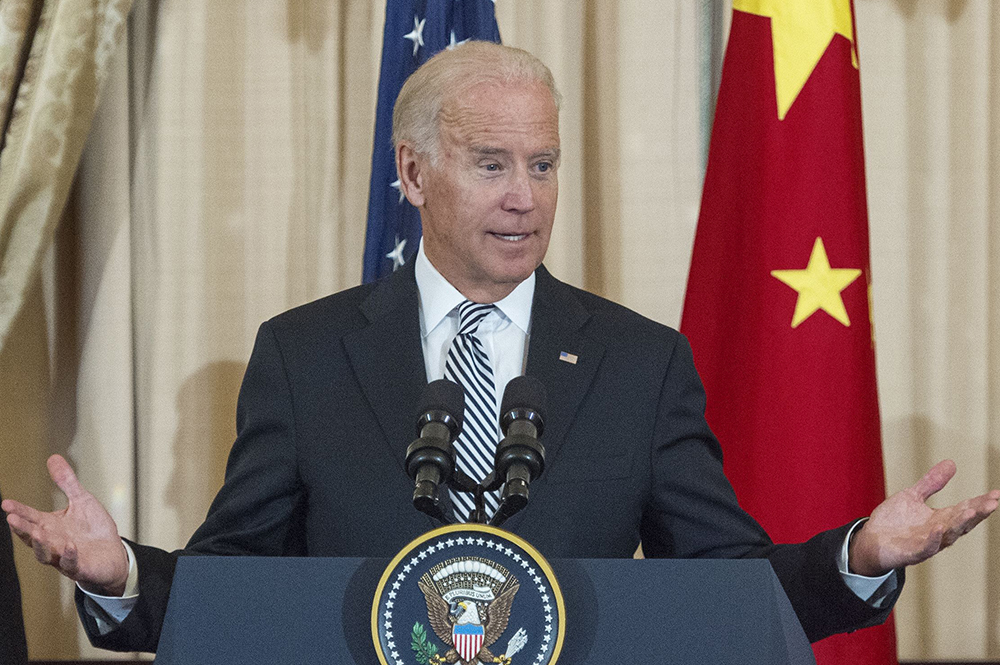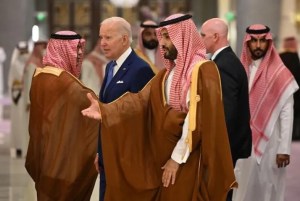Imagine a presidential primary campaign candidate who is far ahead in the polls. Now, imagine that candidate leading in a diverse array of early states – Iowa, New Hampshire and South Carolina.
This candidate is the most famous in his field. He has over four decades in the limelight. He routinely makes remarks that are offensive. Women suspect he is a sexual predator. The commentariat insist he’s finished.
This politician is said to be out of step with his party’s base: his values don’t reflect theirs. Oh, and this candidate would be the oldest nominee in his party’s history, and America’s oldest elected president.
This person is Donald Trump in 2016. He’s also Joe Biden in 2020.
In other words, recent reports of Biden’s downfall may be greatly exaggerated. Biden’s seen a dip in his polling since the first televised debates, after which the pundits said he lost to a rehearsed Kamala Harris. But for all the hype behind her, Harris has yet to soar.
No, Biden’s campaign may be flagging for reasons that are less obvious. The former vice president needs to address his China problem. Nothing undermines his ‘average Joe’ image more than the idea that he would be a supplicant to Beijing. Nothing more imperils his standing in America’s industrial heartland, which has been laid to waste by outsourcing to the Chinese.
In a seminal foreign policy address in New York two weeks ago, Biden provided warmed-over platitudes about restoring the pre-Trump world order. That’s not what the electorate want. The 45th president is ‘dangerously incompetent and incapable, in my view, of world leadership’, Biden said.
Biden presents himself as a restoration candidate. He will undo Trump’s trade war on Beijing and put America back on the economic path it was on before Donald Trump. He did assure his audience that he would ‘get tough’ on the Chinese, but it rings hollow from the former vice president who wants to go back to the way things were.
Biden has shamelessly run on his partnership with Obama. But the problematic aspects of the duo’s legacy have come under new scrutiny. Much of the chattering class assumes that Trump is a celebrity aberration. But there’s no going back. Things have changed.
Foreign policy and trade have always been the most misunderstood planks in Trump’s appeal. These matters are often dismissed as an elite consideration, not a voter preoccupation. But as Rep. Matt Gaetz, who has become a leading avatar of Trump’s foreign policy, reminded me in his office this week, it was in South Carolina in early 2016 that Trump cemented his dominance of the Right.
In Dixie, Trump castigated the misadventure in Iraq and other bipartisan failures – failures which Biden voted for.
The US should largely leave the Mid East theater, Gaetz said, and concentrate on the preeminent challenge of China. The president is said to share this view, even as he’s been slow to formally exit Syria, Afghanistan and the doomed venture in Yemen.
As foreign policy analyst Sumantra Maitra said on Wednesday: ‘Nothing, in international relations, should be a greater worry than the rise of China. Nothing. The Chinese growth in relative power, during peacetime, dwarves all previous peer rivals faced by the US, Imperial Spain, Imperial Germany, Imperial Japan, Nazi Germany, and [Soviet Russia].’
The public agrees, as evidenced by recent research from the Chicago Council that found, two to one, that Americans view China as a rival, not a partner. Biden, and others, are missing the boat here.
‘China is going to eat our lunch? Come on, man,’ Biden infamously said earlier this year, in remarks that he’s since retracted. He should consider a yet broader retraction.
The market-oriented, ‘come on, man’ approach of Biden tells voters all they need to know. A recent Los Angeles Times report detailed Biden’s long history of delivering for the film industry – namely, getting American movies into the Chinese market.
The rot runs further. As Biden comes under increasing fire – from Left and Right – more questions will be raised about the relationships his troubled son, Hunter Biden, forged with Beijing with his powerful daddy’s support.
According to the New Yorker, the younger Biden scheduled a meeting between the then-vice president and Chinese financial bigwigs in 2013. Hunter Biden has also worked with contentious firms in Ukraine, rival of Russia, which America will have to partner with eventually if it ever hopes to counter the Chinese.
‘What I’ve called for simply is for the Senate to call former second son Hunter Biden to come and testify and people look into this,’ Government Accountability Institute president Peter Schweizer told HillTV earlier this year. ‘We’re talking about large deals and large sums of money…it involves countries like China, which is America’s chief rival on the global stage.’
Schweizer is hardly alone in his concerns.
‘The reports of Biden’s and his family’s ties to China are alarming,’ Bradley A. Thayer of the Committee on the Present Danger said. Biden’s business associations ‘appear to fit the standard operating procedure of the [People’s Republic of China]’ as the Chinese ‘gain ever greater influence among politicians in the West and, indeed, globally. It has worked for them for decades.’
‘It’s clear the Biden family has done what many Washington insiders do: play footsie with China when it’s to their own benefit,’ Harry Kazianis, senior director at the Center for the National Interest, told me. ‘If Biden thinks he can avoid this conversation,’ he’s kidding himself, Gil Barndollar of the Center for the Study of Statesmanship said. ‘American elites will face a time for choosing on China, probably sooner rather than later.’
Biden still has much time — and enough of a lead in the polls — to get around his China problem. But his campaign needs to figure out how it will tackle these suspicions about him and Beijing.


















